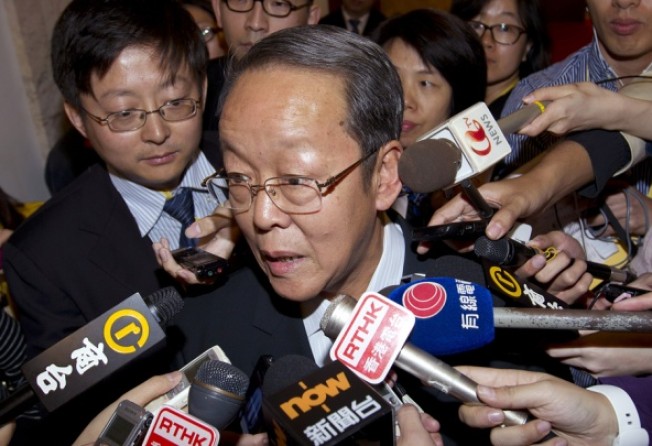Time for Beijing to accept HK is about more than money
The central government should realise that the city's economy and politics are intertwined

Mainland government officials have been coming to Hong Kong regularly to seek investments since the handover in 1997.
Last month, the mayor of Chongqing led a high-level delegation to Hong Kong and assured investors that his city, notwithstanding the Bo Xilai saga, would continue to open up.
Then came teams from Inner Mongolia and Gansu. Later this month, we will see another big trade delegation led by the party chief of Guangxi , Peng Qinghua , the former director of the central government's liaison office in Hong Kong who had established good relations with business leaders.
These official trade visits usually end with the signing of contracts worth millions or billions of dollars. No wonder mainland officials have, for decades, been describing Hong Kong as the goose that lays the golden eggs.
But some mainland officials have started to wonder whether this "golden goose" has turned wild and will not be delivering any more "golden eggs".
They are perplexed: why are Hongkongers so enthusiastic in political debates?
Wang Guangya , director of the Hong Kong and Macau Affairs Office under the State Council, two weeks ago echoed this sentiment, telling Hong Kong visitors that "a few" people in Hong Kong have ignored the city's economic development and are making a big fuss over certain political issues.
He warned that Hong Kong was at the crossroads in terms of economic growth.
The "political" issues he mentioned could refer to the debate on universal suffrage; the endless conflict between the executive branches and the legislature highlighted by filibustering in Legco; and, of course, the intensifying tension between Hong Kong and the mainland.
This tension has spurred the growth of a Hong Kong autonomy movement, not to mention infighting within the so-called pro-establishment camp between supporters and opponents of Chief Executive Leung Chun-ying.
A Legislative Council motion proposed by lawmaker James Tien Pei-chun last week to investigate the failed Hong Kong Mercantile Exchange founded by Leung's top aide, Barry Cheung Chun-yuen, was seen as an example of this infighting, although Tien dismissed the idea. Tien supported Leung's rival, former chief secretary Henry Tang Yin-yen during the election.
Political wrestling has become so popular that the newspapers are full of political gossip.
But gossip aside, yesterday bore witness to a major political development - the first deliberation day for Occupy Central, a protest movement organised by Benny Tai Yiu-ting, a University of Hong Kong law professor. Tai and his core team held the first D-Day gathering to get a consensus on how to run the protest to block Central in July next year.
This civil disobedience action is aimed at applying pressure for what the campaigners describe as "genuine" universal suffrage.
The protest movement will definitely have a significant impact on Hong Kong politics. As expected, it has been labelled by Beijing as a movement that will seriously damage the financial and economic stability of Hong Kong.
Understandably, maintaining Hong Kong's prosperity has long been Beijing's wish and policy. Officially, Hong Kong and Beijing agree that the city is the logistics, financial and trade centre of the nation and the region.
Beijing, therefore, has never tired of reminding Hong Kong not to be marginalised by the fast developments in the mainland and the region. It also strongly believes that as long as the business sector - especially the tycoons - is happy, Hong Kong will be trouble-free. It thinks this is how capitalism works.
But politics and the economy are intertwined, and times have changed. The Chinese classic I Ching, or Book of Changes, tells us that "only change is eternal".
With 2017 approaching, no matter how many reminders or warnings Beijing issues, the inevitable fact is that Hong Kong is turning political.
The leaders in Beijing and Tamar have to change their mindset and accept that Hong Kong is no longer only a "business" city. Beijing's traditional economy-oriented policies towards Hong Kong will have to adapt to meet the new challenge.